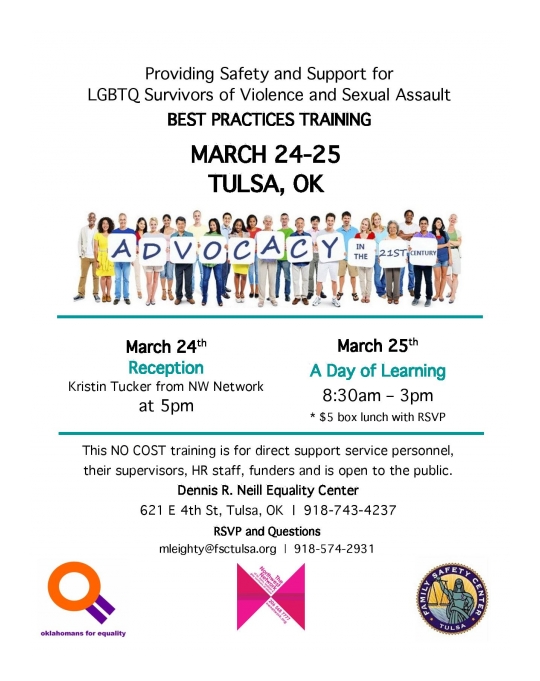Providing safety and support for LGBTQ survivors of violence and sexual assault

Most LGBTQ relationships are based on love and respect and everyone has the right to seek a safe and healthy relationship. When relationships are not healthy, people need help. There are some facts we would like the community to understand.
There exists a common belief that domestic violence in same-sex relationships is a mutual fight. But the fact is that domestic violence is about power and control and will almost always involve a number of forms of abuse (emotional or social or physical). The truth is abusive partners in LGBTQ relationships use all the same tactics as abusive partners in heterosexual relationships — physical, sexual or emotional abuse, financial control, isolation and more.
However, abusive partners in LGBTQ relationships also reinforce their tactics that maintain power and control with societal factors that compound the complexity a survivor faces in leaving or getting safe in an LGBTQ relationship. More than 61% of LGBTQ survivors in the US were turned away from domestic violence shelter in 2012. One in four lesbian, gay, bisexual, transgender and/or queer people is abused by their partner. Intimate Partner Abuse against men is overwhelmingly committed by men.
Domestic violence among same-sex couples is a serious public health concern. Victims of same-sex domestic violence face added challenges when attempting to receive help. More gay and lesbian victims of abuse are reporting their experiences as the general public has become increasingly more accepting of same-sex relationships, which is a good thing. Still, barriers to equal treatment for same-sex couples remain. Survivors of same-sex domestic violence can receive the recognition and help they need with further research, better training for law enforcement officials, and more funding for relevant programs.
The Family Safety Center partnered with Oklahomans for Equality and Legal Aid Services of Oklahoma and applied for discretionary grant program from the Office of Violence Against Women (OVW). These funds are authorized by the Violence Against Women Act of 1994 and are a specific grant called a Legal Assistance for Victims grant. We wrote the grant in an effort to bring legal services to survivors at the margins, specifically LGBTQ survivors. As part of that partnership it is our mission to increase awareness about intimate partner violence and sexual assault. We are also working diligently to educate all personnel who come into contact with the survivors to use 21st Century advocacy, professionalism, and understanding.
On March 24 and 25 in Tulsa, the Family Safety Center with Oklahomans for Equality will host a Best Practices Training. This FREE event is for direct support service personnel, their supervisors, HR staff, funders and is open to the public.
A welcome reception will be held March 24th at 5pm, where Kristin Tucker of the Northwest Network in Seattle will name and frame the barriers that keep some LGBTQ survivors from seeking help.
A Day of Learning will be held March 25th 8:30am-3pm. Kristin will lecture on how to Assess Coercive Control in same abusive same sex relationships, address violence and sexual assault from a trans lens, as well as discuss common hurdles an LGBTQ survivor may encounter while navigating the civil and criminal legal systems.
Join us at the Dennis R. Neill Equality Center, 621 E. 4th st. in Tulsa, OK for this incredible opportunity to learn what advocacy looks like in the 21st Century. A $5 box lunch is available with RSVP. Please contact Mia Leighty with questions and to RSVP. Email to mleighty@fsctulsa.org or call 918-574-2931.
The Gayly - 3/9/2016 @ 9:52 a.m. CST





